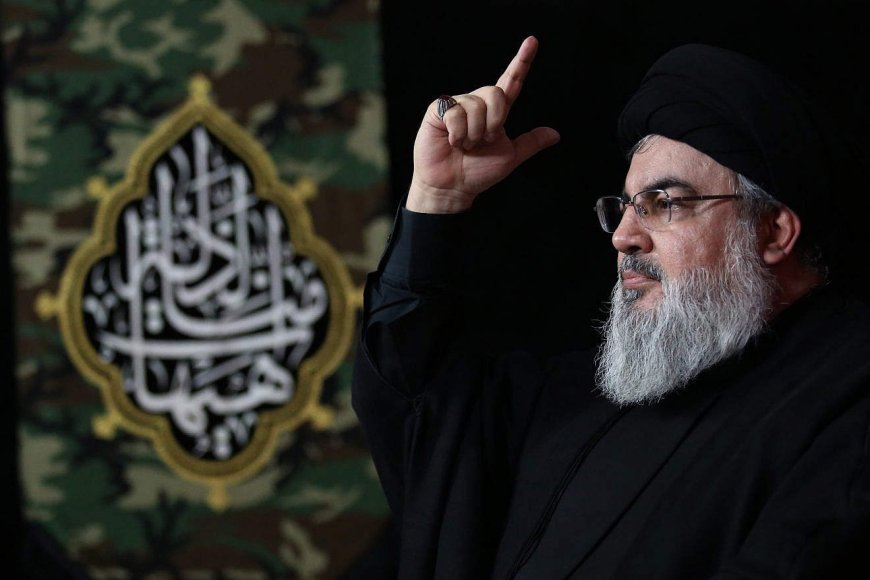The assassination of Hezbollah's Nasrallah: A Western-backed strategy or a critical turning point for resistance?
Shockwaves throughout the Middle Eastern resistance movement have come from news of the killing of Hezbollah's Secretary-General, Sayyed Hassan Nasrallah. Along with numerous high-ranking officers, Nasrallah's murder surely represents a major blow to Hezbollah. Still, the question is: Is this the dawn of a more determined and resilient movement or the end of resistance?

Shockwaves throughout the Middle Eastern resistance movement have come from news of the killing of Hezbollah's Secretary-General, Sayyed Hassan Nasrallah. Along with numerous high-ranking officers, Nasrallah's murder surely represents a major blow to Hezbollah. Still, the question is: Is this the dawn of a more determined and resilient movement or the end of resistance?
The first responses of the Western media to the event, which lacked criticism or careful analysis of the more general political consequences, show a long-standing inclination toward Israel and its forceful activities in the area. This murder is part of a larger political plan that fits the West's tacit sanction of Israel's attempts to destabilize its enemies, even at the expense of more raising tensions, not only about eradicating a leader.
An Unperfect Western Political Story
Western governments—especially those of the United States and important European allies—have long ignored Israel's provocative activities. From the takeover of Palestinian territory to the continuous bombings in Lebanon, the West constantly presents these actions as required acts of self-defense while paying scant thought to the effects they cause on regional security. From this perspective, Nasrallah's murder should be seen as an operation meant to silence one of Israel's most powerful rivals, under implied Western support.
Treating Nasrallah's assassination as yet another tactical triumph helps Western governments and their media outlets evade the more important question: What does this mean for long-term peace in the Middle East? Neither will this murder eliminate Hezbollah's presence in Lebanon nor will it bring about the security Israel so craves. Conversely, it will strengthen the likelihood of any significant diplomatic interaction via entrenchment of hostility.
Not Linear History—a Cycle of Disruption
Historically, the West has oversimplified the political scene of the Middle East, sometimes viewing wars as linear processes with obvious beginning and ending. Actually, the reality is significantly more complicated. As the paper implies, history is filled with ruptures where unanticipated changes in power and opposition occur. By eliminating Nasrallah, Israel might have momentarily gained a victory, but it hasn't undermined Hezbollah's larger network or destroyed the attitude of opposition. As demonstrated in various liberation struggles throughout the world, history shows us that resistance movements may become more powerful following horrific persecution or losing of important leaders.
For Hezbollah and those who support it, this killing marks as another chapter in an ongoing conflict. The reference to the Qur'an in the original passage emphasizes a basic conviction shared by many in the resistance: that ultimate success depends on divine intervention and tenacity against hardship. People all around the region who have seen leaders killed, territory seized, and their fundamental rights abused without international responsibility will find resonance in this attitude.
Strategic Failures of Israel
Israel has failed to reach its long-term strategic objectives even with Western nations' support, notwithstanding its tactical achievements. Apart from safeguarding its boundaries, Israel's larger goal is to normalize ties with its Arab neighbors, therefore fostering stability for its present population as well as for any future immigrants. Still, continuous strife in nations including Iran, Iraq, Syria, and Yemen seriously jeopardizes this objective. Actually, Nasrallah's murder will not significantly help to promote this process of normalizing. It might even backfire since the martyrdom story of Hezbollah will inspire even more support for opposition all around.
Western political leaders have to understand that the security of Israel depends on more than just the eradication of its adversaries. Security calls for tackling the underlying causes of conflict: occupation, denial of fundamental human rights to millions of Palestinians and other impacted groups, and marginalization. Any temporary success, including the killing of leaders like Nasrallah, will remain hollow until these problems are resolved.
Calling for Resistance and Resilience
The essay reminds us of a crucial reality: grief must finally give way to action while the West keeps misreading the circumstances. Hezbollah has always known the difficulties it must overcome. Knowing that some of the most strong countries in the world support its enemies, the organization understood that they have great financial and technological advantage. Still, such understanding has never determented them from their calling. Although the death of Nasrallah hurts Hezbollah and other resistance forces, it also serves as a rallying point.
The death of a leader marks not the end of opposition—often, it helps to revive it. The West's inability to accept this straightforward truth reveals a more thorough misreading of Middle Eastern dynamics. If Western political leaders are serious about promoting long-term solutions in the area, they have to reevaluate their strongly faulty presumption that sheer force and assassination will bring about peace or stability.
Time to Review Western Policy: Final Thought
For Western leaders, the murder of Sayyed Hassan Nasrallah should cause some thought. Instead of commemorating Israel's military triumphs, one should consider the wider consequences of such behavior. Support for Israel's strong policies just helps to prolong the cycle of conflict by growing regional instability and driving peace far beyond reach.
Middle Eastern true security will come from tackling the underlying causes of conflict—occupation, inequality, and the denial of human rights—not from the eradication of resistance leaders. Until then, any triumph claimed by Israel supported by Western countries would remain flimsy and transient while opposition develops and gets stronger.













































